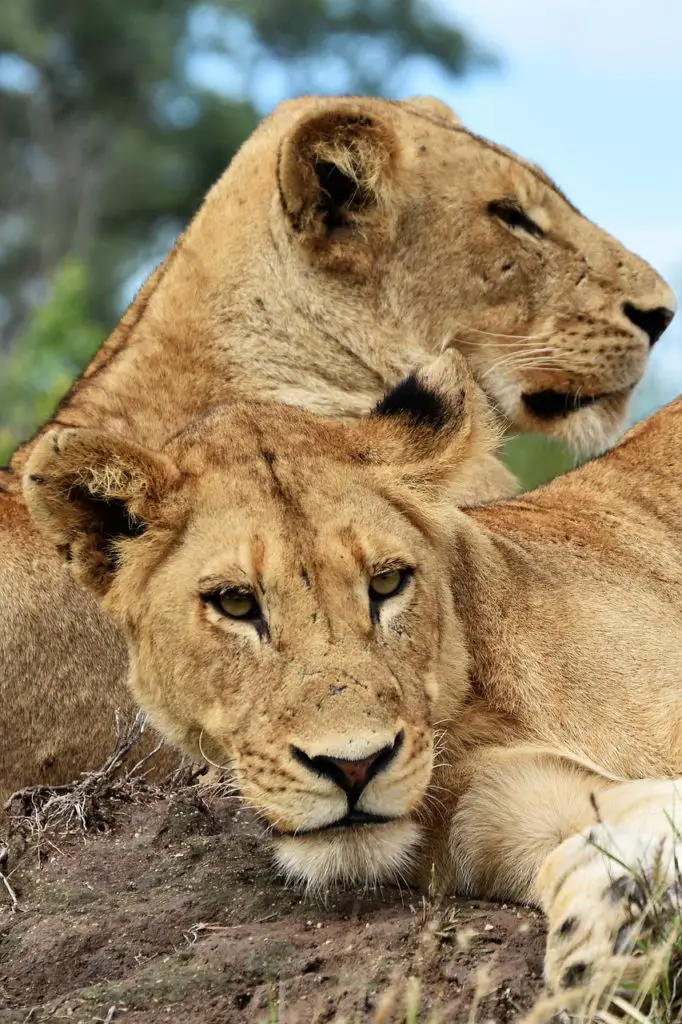Wild cats and domestic cats have the same physical features, and somehow they also have the same personalities. Both of them have claws, sharp teeth, facial structure, and an instinct of a hunter. However, if big or wild cats spot a domestic cat, do big cats recognize it as their relative or family? What’s the fact?
Do big cats recognize domestic cats?
No. Wild or big cats do not recognize domesticated cats. Animals don’t care how humans classify them. They don’t care if the domestic cats were in the same family as them. Wild cats are driven by hunger, survival, and instincts. If eating the domestic cat will cleanse their starvation, they will kill it.
There are lots of things you can learn from this topic. We are going to answer various questions related to this subject. Also, we are going to tell you the various similarities and differences between big and domestic cats. If you are ready to learn more about the world of cats, let us keep moving!
Do Big Cats Attack Domesticated Cats?
Yes! A big cat like a tiger or lion will attack and can eat a domestic cat. They do not care if the domestic cat is in the same family as them. If they feel hungry, they will kill and eat it. However, the domesticated cats may give the big cats a hard time because domestic cats can escape by climbing in a tree very high up.
However, this only happens rarely because big cats often hunt bigger prey and they don’t live in the same habitat as cats. Lions, cheetahs, and tigers generally hunt deer, wild boars, buffalos, and sometimes bigger animals like elephants or giraffes. Hunting a small animal like a cat is a waste of energy because that cat is like a biscuit for them.
Big cats live in the jungle, savannas, grass plains, open woodlands, scrubs, and semi-arid plains of sub-Saharan Africa, while domestic cats live in a city and with humans. That is why this only happens rarely. But if they see one, they are most likely to kill and sometimes eat it only if they are near death because of starvation or if their cubs need food desperately.

Can A Big Cat Eat A Domestic Cat?
Yes! A big cat can eat a domesticated cat. However, this will only happen rarely. Why? Because big cats are living in a different habitat. They live in jungles and forests, while domestic cats live in the city with humans.
Another reason why this will happen rarely, which I have mentioned above, is because big cats will not waste their time and energy catching a biscuit. They will more likely waste their energy chasing wild boars or buffalos rather than a small cat that can escape from them effortlessly by climbing a tree.
Similarities Of Wild And Domestic Cats

Now, let us check the various similarities between wild and domestic cats! Below are the nine similarities of big and domestic cats.
Sleeping Time
Both big and domestic cats have the same sleeping time and schedule. They are both stubborn and addicted to sleeping. Both wild and domestic cats spend 16 to 20 hours a day lying down and sleeping.
Cats have evolved to sleep for a long time in a day. Wild cats, which are their cousins, sleep a long time in a day to gain energy for hunting and killing their next prey. Even though our pet cats do not usually hunt, the instinct of sleeping for hours was inherited by them from big cats and stays with them until today.
Domestic and wild cats will sleep more than usual if they are sick, old, or injured. Kittens or cubs usually sleep most of the day. Adolescent domestic and wild cats may have irregular sleeping hours. Adult cats are the ones that sleep 16 to 20 hours a day.
Sense Of Smell
Wild and domesticated cats have an amazing sense of smell. Both of them may open their mouths to smell better. They can smell food far away, and they use their sense of smell to identify their families and loved ones.
The sense of smell of cats is their only way to identify food, people, and objects. Both wild and domestic cats have 200 million odor sensors in their noses. They have a better sense of smell than human beings.
Both wild and domestic cats possess an uncommon olfactory organ on the roof of their mouths called the Jacobsen’s organ. They sometimes open their lips to draw air on their Jacobsen’s organs
Grooming Behavior
Both wild and domestic cats groom themselves. They spend a lot of time while they are awake grooming themselves. Wild and domestic cats do this to keep their bodies clean and for other health reasons, like regulating body temperature or to heal their wounds.
Sometimes your pet cats will groom themselves too much because they are too stressed or have skin allergies or parasites on their bodies. Cats groom themselves 30 and 50 percent of their day. But if you notice that your cat is grooming excessively or losing hair, take them to the vet.
Cats, small or big, will also lick their friends and loved ones. They do this to show affection. Lions will lick their fellow lions as a way to strengthen their relationship. They take care of their pride members, and licking is one of their ways of taking care of other lions.
Both Of Them Are Stalker
Both domestic and wild cats are adept stalkers. All cats, wild or domesticated, will stalk their prey before they attack it. They will crouch down, focused intently, wiggle their butt, and pounce to grab their target.
Your cat may also do this on something across your room that you can’t see. Cats do this before leaping into action. Aside from being good stalkers, both of them are also good hunters. Cats were bred before to prevent rats on the ships of the Europeans during an expedition. All felines have the genes of a hunter, small or big!

They Love Playing And Catnip
Both domestic and wild cats love to play. They love lasers, playing in boxes, and messing up with the toilet paper.
Your domestic cats love boxes and even wild or big cats! According to zookeepers and rescuers, lions love to spend their time in a cardboard box if they managed to find one around them.
Both domestic and wild cats love to play with their fellow felines. Cats will spend their awake time playing with their friends or owners. Same as the lions and tigers. Lions are playful creatures. They love messing up with their fellow lions by surprising them from behind.
Aside from playing, felines also love catnip. However, not all of them do. According to researchers, catnip targets feline’s happy receptors inside their brains. Most cats, big or small, react to catnip by rolling, flipping, and rubbing. While doing these actions, they may meow loud.
Method Of Marking Their Territory
Both domestic and wild cats use similar methods to mark their territories. What are those methods? Spraying, face rubbing to distribute their scent by the glands on their faces, scratching the tree trunk for lions and couch for cats are their ways of marking their respective territories.
Felines are much more territorial than canines. They will attack whoever it is, including their cat friends, if the cat feels that his/her territory has invaded. Territorial problems on your house cats may occur if a new cat arrives at your house when a young kitten becomes mature, or if your cat confronts another cat outside your house.
Vocalizing
All felines, big or small, love to talk a LOT! Cats are social animals that love to spend time with their loved ones. During the time they are awake, they will talk and talk until they pass out. House cats will meow when they talk, while big cats have their own ways of talking to one another. It can be similar to your house cats.
Hiding Foods
Domesticated and wild cats love to hide or play with their food. House cats will hide the mouse they’ve killed, while wild cats often hide or move the prey they killed somewhere else. Sometimes they will bury it to save it for their next meal.
Kneading
No one certainly knows the reason why cats knead. Kittens and cubs knead when they are nursing. They do this to help stimulate milk flow, and this is normal. But no one ever knows the reason why grown-up cats continue to do this. Some say it is a signal of contentment or happiness in big cats.
Differences Between Wild And Domestic Cats
After knowing the similarities between wild and domestic cats, let’s move on to their differences. Let us go!
Size Of The Brain
Domestic and big cats have the same physical features, but the size of their brains is different from each other. Wild cats have inevitably larger brains than domestic cats.
Shape Of Pupil
Domestic and wild cats have different shapes of pupils. Domesticated felines have slit pupils, while large felines have round pupils. The reason why they have different shapes of pupils is because of their lifestyle.
Purr And Roar
Domesticated cats purr, but they cannot roar. Lions, tigers, and other big cats can roar but don’t purr. So in simple words, domesticated cats purr while wild cats roar. The reason is that they have anatomical differences in the throat.
Aggression
Another difference between domesticated and wild cats is aggression. It is obvious. Wild cats are naturally aggressive because they need that to survive in the jungle. Domesticated cats don’t need that because they have humans that help them survive unless a mother cat has kittens with her.
Final Words
Big cats do not recognize domesticated cats. When they see one, they might attack and eat the domesticated cat. However, this happens rarely because both of them live in a different habitat and because big cats will never waste their energy for a biscuit. Big cats always want large prey like buffalos.
Source: lonetreevet.com, lithub.com




